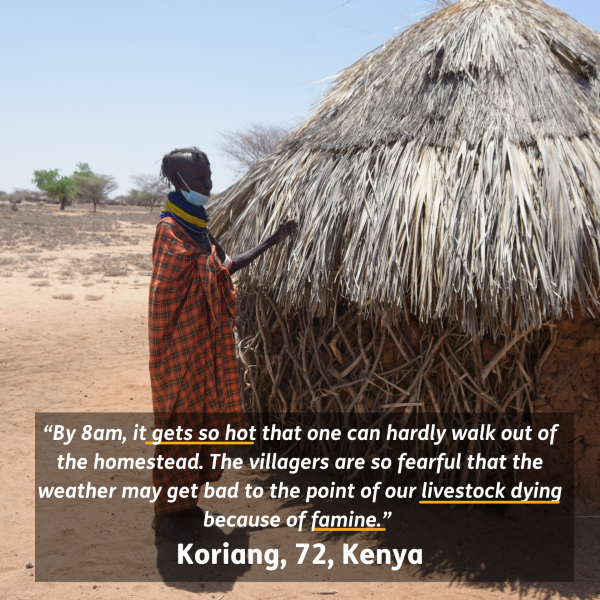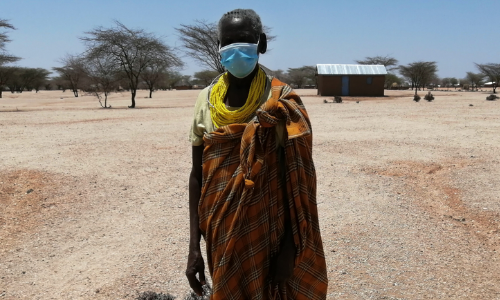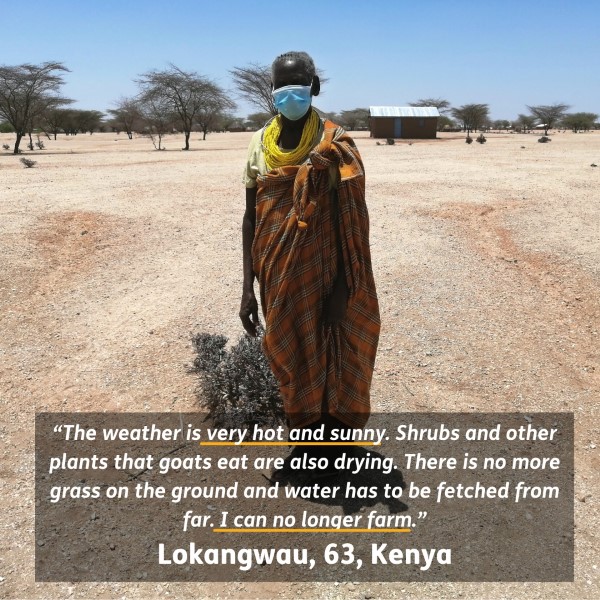
An intergenerational crisis: climate change

Published on 01 November 2021 12:00 AM
The international climate summit, COP26, where world leaders have gathered to discuss climate change opened earlier this week. COP which stands for Conference of the Parties, brings together 190 countries to agree on how to tackle climate change and this year marks it’s 26th year, giving it the name COP26. The UK is hosting the summit which is taking place in Glasgow, Scotland from 31st October 2021 to 12th November 2021.
Human activity is changing the climate in unprecedented and sometimes irreversible ways. Time is already running out for the world’s most at risk people.
Most at risk communities: struggle for survival
The impact of climate change is wreaking havoc across the world at a scale that is already being felt by some of the world’s most marginalised and at-risk communities. A landmark report by the Intergovernmental Panel on Climate Change, described as ‘a code red for humanity’ by the UN chief, warned of increasingly extreme and frequent heatwaves, droughts and flooding, and a key temperature limit being broken in just over a decade.
The global climate emergency and extreme weather could have terrible consequences for everyone, but those who have contributed least to the global climate emergency are hit the hardest - older people and their families who are already in crisis, losing their homes, their livelihoods, and bearing the brunt of climate change. And their voices are unheard.
Like Koriang and Lokanwau who are already amongst the worst affected. The climate emergency is adding to their struggle to grow food and sustain their livestock.


Strengthening resilience to climate change
Age International has been working to meet the needs of older people affected by climate change, an example of this is in the already challenging Thar desert region of India where climate change has been exacerbating droughts and making it extremely difficult for older people and their families to grow and harvest food. The dry and arid land made it difficult for communities to live and sustain themselves.
With our partner, GRAVIS, we are supporting communities to build khadins, a traditional method of harvesting water that helped them store the water underground. This has meant communities now have access to water all year-long to grow crops and feed their families. Older women no longer must struggle to get water from distant collection points.
Protecting humanity: we must act now
Whether heatwaves, like the ones experienced in Greece and Turkey this summer, or floods like those experienced earlier this year in the United Kingdom, Germany and China, the stark and grim reality is these climate related crises are already being experienced in every continent across the globe, and for the world’s most at risk communities the escalation will be catastrophic.
The immediate consequences of climate emergency for the world’s most at risk people, including older people, cannot be ignored. Their voices and needs must be heard by governments at the forefront of the UN Climate Change Conference (COP26).
Age International is standing with organisations across the globe calling for climate action in solidarity with people who need it the most. We encourage you to join too.
Our partner HelpAge International has shared a briefing that explores how engaging and empowering older people’s voices and actions in tackling the climate crisis can build even greater support for the climate movement. See it here.
A rising force for change: Older people and climate action
The climate crisis is the most pressing issue of our time and it affects us all, no matter our age. Every day, older people around the world are using their voices, knowledge and energy to make a difference.
Together with our partner, HelpAge International, we have one message: Climate Action must include all ages
 Follow us on social media
Follow us on social media
Keep seeing our stories or ask us a question - connect on Facebook and Twitter.
